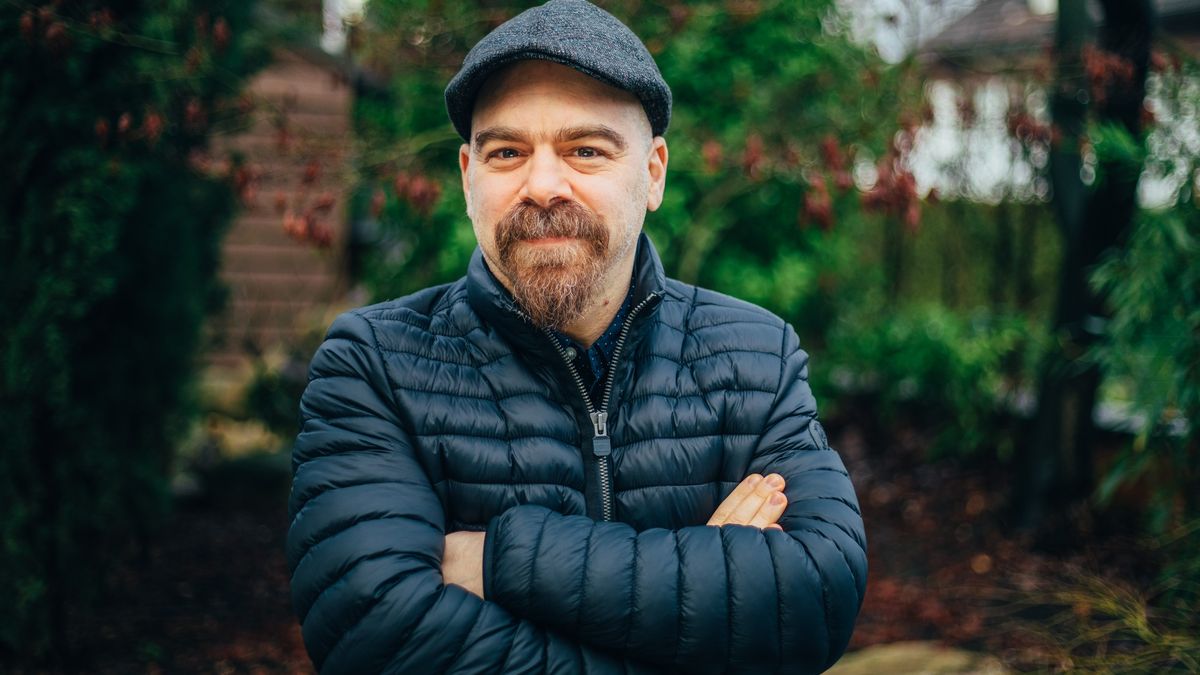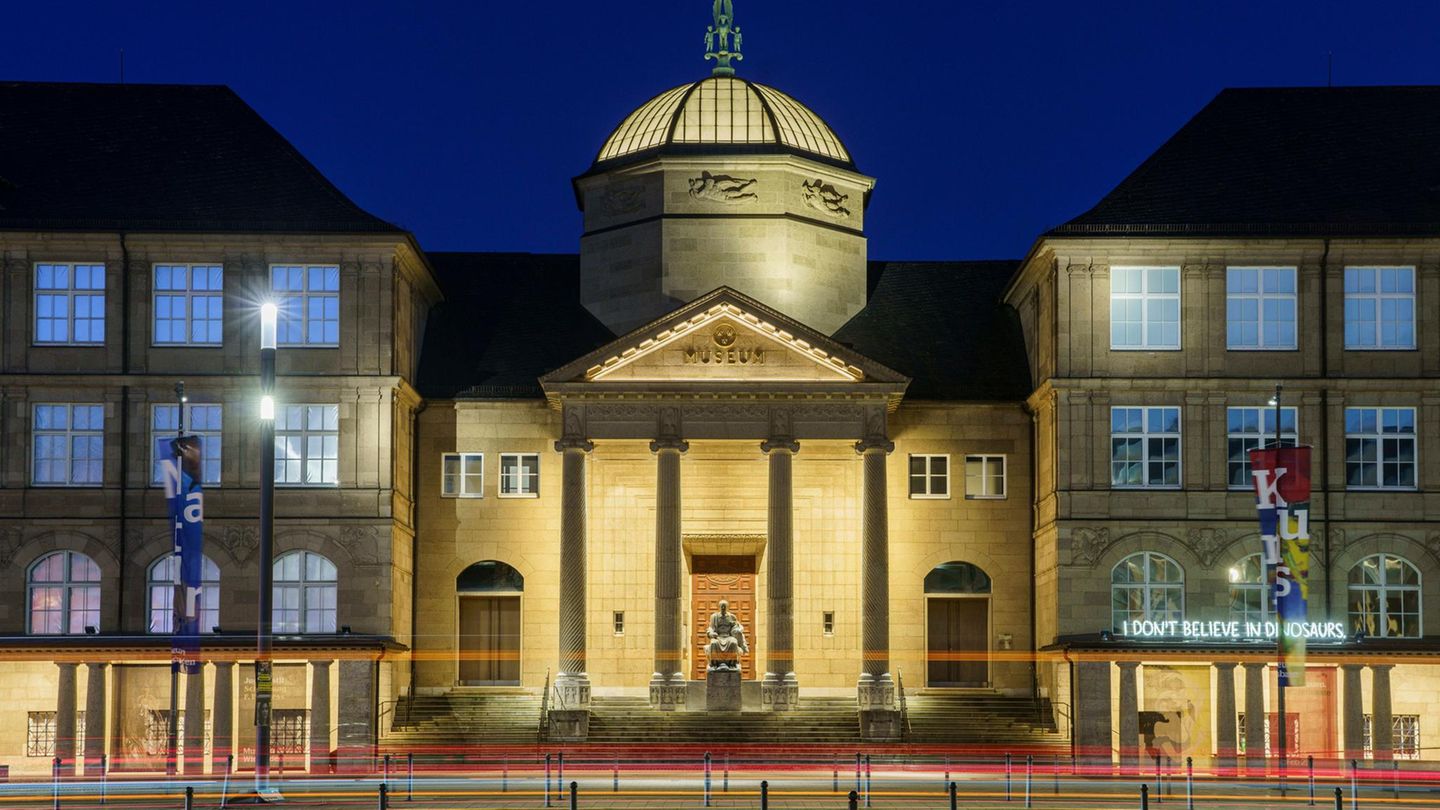Yesterday a century of the visit of Albert Einstein To Argentina. The scientist spent a month, gave conferences, had celebrations, and got bored beautifully. Ariel Magnus rescue it in “Einstein in a quilombo” (Edhasa), choral novel, intriguing and fun, “relatively police and relatively spies.” Magnus It has written 23 books, between novels, stories and essays. Reside in Berlin. We dialogue with him.
Journalist: What led him to put Albert Einstein in a quilombo?
Ariel Magnus: Investigate. Go to the newspapers of 1925. to dive into the time. Einstein, a key figure of the twentieth century, was the most important foreigner visited by Argentina. He received the Nobel Prize in Physics in 1921. That year he had to go to the United States for the first time. Four years later arrives in Buenos Aires. Putting it in a quilombo had to do with the development of the reason for your visit. Einstein did not come as a scientist but as a guest of a Zionist plan, the same one who had previously taken him to the United States. The trip had to do with the ideal of Theor Herzl to implement the Jewish state in Argentina. I took that to invent the Soya Group, Creole branch of the Society of Jews (Soj) and, in addition, at that time were Baron Hirsh, the Jewish anarchists and the mafia of the Zwi Migdal.
Q.: How much did the investigation take?
A.M: Not so much. The idea of writing about Einstein’s visit was proposed by an editor. I was interested because many do not know that this happened, and what is remembered every so often seems to always be the same broken note. Perhaps because Einstein’s visit was a bit bland, the Zionist project remained in nothing and he was not with many batteries. The novel seeks to rescue him. I spent months reading Einstein’s newspapers (where he writes his critical impressions of Argentina), his books, biographies, imagining how his passage through our country had been. Historiography goes fast through the moments where nothing important happens for history, that opens a huge potential for the fiction of the possible, of what could have happened. That formula joins this novel with others where I mixed real characters with fictitious, such as “Continuity of Emma Zunz” or “The one who moves the pieces”, my novel about chess, where I rescued the super chessista Sonja Graf, taking it out of the Museum of the Escohs.
Q.: Why did one of the most famous worldwide chose as a detective, changing the name?
A.M: In a novel Agatha Christie gets tired of Hercules Poirot and sends it to Argentina. It is that Argentina was a country where America. I wanted to use Poirot, but Agatha’s heirs do not allow it. That is why now in the novel it is called Hymans and his adventure partner Copyright. These changes allowed me to relate them to the Argentine police novel that begins at that time with the story “La Pesquisa” by Paul Groussac.
Q.: If the detective comes from Agatha Christie, who does Elsa Jerusalem derive from, who passes through Einstein’s wife to save him?
A.M: Elsa Jerusalem existed, was a writer, and accompanied Einstein during her visit. His book “The Sacred Beetle”, on a Protic of Vienna, was a success. He studied philosophy in Austria, and was an influential feminist. In Argentina he published stories in Spanish. The granddaughter told me things that allowed me to make it closer. That Einstein’s wife was passed is perhaps as exaggerated as possible.
Q.: Why did the police mix, the investigation of a crime, with the spy novel, with the conspiracy of secret companies?
A.M: Notice that the novel is relatively to the police, relatively spies. It is a novel about the author of the theory of relativity. The novel makes jokes with that. He doesn’t know where to place. It is not that a genre eludes me, but that the characters and their circumstances are taking me. There are two plots, which I wanted to congenize, that are never touched and mixed at the end. There is a real world and a fictitious world, and between them a world is armed in which, to my liking, we live writers.
Q.: To reside in Germany led him to write a world -famous German?
A.M: I wrote this novel in Argentina. I descend from a Jewish German family. I always liked the idea of the foreigner, they are Chinese, Germans or English. I did my studies in Berlin between 1999 and 2005 when I returned to Buenos Aires and began to publish. In 2020 I returned to Berlin, invited as a German writer. Now I’m about to publish my first novel in German. So far writing in Spanish, I feel very Argentine, and writing in German is something new that excites me.
Q.: What is that novel about?
A.M: It is a German novel for Germans on a German theme: “Those left of Tempelhof.” Tempelholf is a gigantic place known as “Hitler’s airport.” In the late 90s they closed it, after a while they reopened it had several uses and today it is a kind of park where people go, to spend the day, to gather River fans to drink mate and share a roast, to give a personal fact. For a while that place was used to receive refugees. The novel is about a Syrian refugee who stayed there, because the rest were relocated to the rest, and has an Argentine friend. Once again I am interested in the foreigner who reaches a country, and allows me to see the country from a foreign point of view. I chose a Syrian to run from my usual place, the Argentine or the German Jewish family who had to exile. As in the Tempelhof they become recitals in the novel there is an Argentine who wants to make a recital of the Rounds there that will be the greatest of all time.
Source: Ambito
I am an author and journalist who has worked in the entertainment industry for over a decade. I currently work as a news editor at a major news website, and my focus is on covering the latest trends in entertainment. I also write occasional pieces for other outlets, and have authored two books about the entertainment industry.




